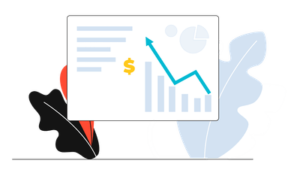Do you know what Agile Coaching is?
We are referring to that discipline or methodology that you would never want to do without. Today we will dedicate ourselves to answering this question to address agile methodologies applied to business coaching from the beginning. We will unveil its characteristics and advantages, as well as everything it can do for your teams and your business.
Are you going to miss it?
What is Agile Coaching
It is well known that the most competitive companies in the market bet on agile methods, such as Scrum or Kanban, for a simple reason: they allow you to manage your projects in a more flexible and efficient way.
This way of teaching, focused on developing the skills and potential of employees so that they can achieve their goals through an agile mindset, is called Agile Coaching. It is a methodology that not only allows to achieve the goals set and help people to develop, but to flow within the system in which they operate, while learning continuously to constantly improve.
Agile is not only about speeding up the company’s processes, but also about making them fluid and eliminating mental and emotional barriers to communication with the teams and between the parties involved, the stakeholders.
Do you remember that famous saying “Go slowly, I’m in a hurry”? Well, it means that we must follow a pace that takes us far in value, not in distance. This is the crux of the matter in Agile Coaching.
Scrum and Kanban: agile methodologies
Did you know that Scrum is a project management framework that focuses on delivering products in iterative increments and teamwork, and Kanban is a project management technique that focuses on workflow and continuous improvement?
On the one hand, Scrum is a software project management methodology focused on delivering value to the customer through an iterative and incremental approach. It is something of a lightweight framework that can be easily adapted to a wide variety of projects and companies. Collaboration, flexibility and value delivery are the pillars that support it.
Kanban, on the other hand, is a methodology for managing change and a technique for improving customer value delivery. This project management method focuses on improving efficiency and workflow. To this end, it enables the management of all types of professional services. It was born under the idea that teams should have better control of work in progress, as well as limit the number of tasks in progress to avoid work overload.
The Agile transformation brings with it the need for new professional profiles. For example, a Scrum team requires the roles of Product Owner, Scrum Master and Development Team, who should be accompanied by an Agile Coach.
This is the agile expert who has the necessary skills to help people adopt the agile mindset. This allows them to understand the agile principles and values at the root, as well as to promote self-organization, autonomy and responsibility in projects. He is a facilitator with observational skills who pursues group excellence. He is also the person best able to transform teams and who knows how to scale them to a high performance level in different contexts.
Agile Coaching’s impact on the organization: benefits
Creating quality products, on time and to the customer’s expectations, is a challenge. So how do you become the most desirable option for that customer? You will have to deliver your breakthroughs in small doses, listen to them, adapt to their needs by delivering their product early and continuously. And you can only do that with Agile methodologies.
When you work on a project with Agile Coaching, you need to bring to light everything that this method solves:
- It improves the response to change. By teaching people to work in an agile way, you are giving them the ability to adapt and respond efficiently to changes. This can improve the company’s competitiveness and help it stay relevant in the marketplace.
- Increases customer satisfaction. By giving them greater flexibility in the project development process. The agile approach allows customers to change their requirements during the development process, resulting in a more satisfactory product for them.
- Optimize work processes. A higher level of efficiency and productivity can be achieved. It is based on the agile philosophy, which focuses on delivering value to the customer through a process of continuous iterations and deliveries.
- Improves coordination between your teams. This is possible thanks to strict planning and tracking of tasks, which allows each team member to know at all times which tasks to perform and at what time.
- Improves product quality. It focuses on continuous product improvement and increasing the effectiveness and efficiency of development teams. The goal of Agile Coaching is to drive change and improvement of software development processes, in order to achieve higher quality in the products finally delivered to the customer.
- It facilitates the collaborative work of the team. And it does it in a much more efficient and effective way. Agile Coaching helps teams establish a culture of collaboration and continuous improvement, enabling them to achieve a higher level of success.
- It increases the productivity of work teams. Its objective is to improve the productivity of work teams and help them achieve their goals. It is based on the idea that human beings are the most important asset of an organization and that the potential of each individual must be cultivated and developed. To this end, it focuses on developing the skills of collaboration, creativity, critical thinking, and leadership.
- It increases control and predictability. This way of structuring work allows development teams to have greater control over the development process and better predictive ability. This is because the development process is divided into small stages, each of which is iteratively performed and focused on a specific objective. By breaking the work into small stages, teams have a better understanding of what it takes to complete them and can identify and solve problems more efficiently.
- It fosters the creation of an agile company culture. It is characterized by greater flexibility and adaptability to changes in organizations, allowing them to be more competitive in the marketplace.
- Increases employee motivation. It allows them to set short-term goals and receive constant feedback. The goal of Agile Coaching is to boost the performance and success of a team in a changing business environment.
Finally, remember that Agile Coaching can help your company improve its processes, increase efficiency, set realistic goals and deadlines, and improve people’s ability to achieve goals.
Do you want to know more about this work methodology? Request information about OlaCoach courses and discover our Coaching Skills for Agile Coach training. It is the Coaching Skills for Leadership-CSL course, with specific adaptations and teachings for the Agile Coach.










